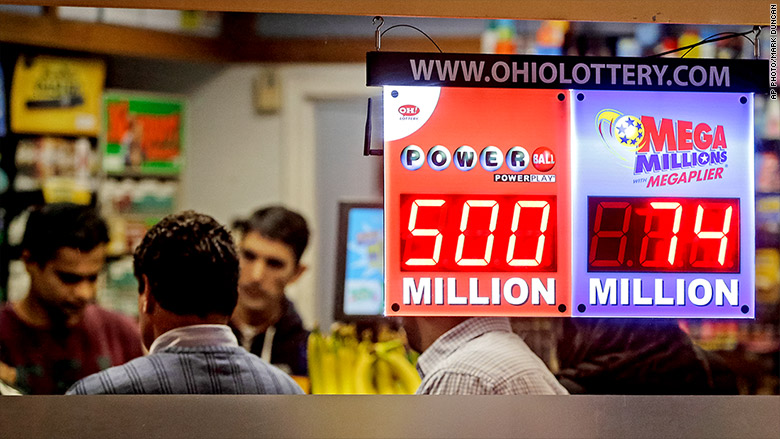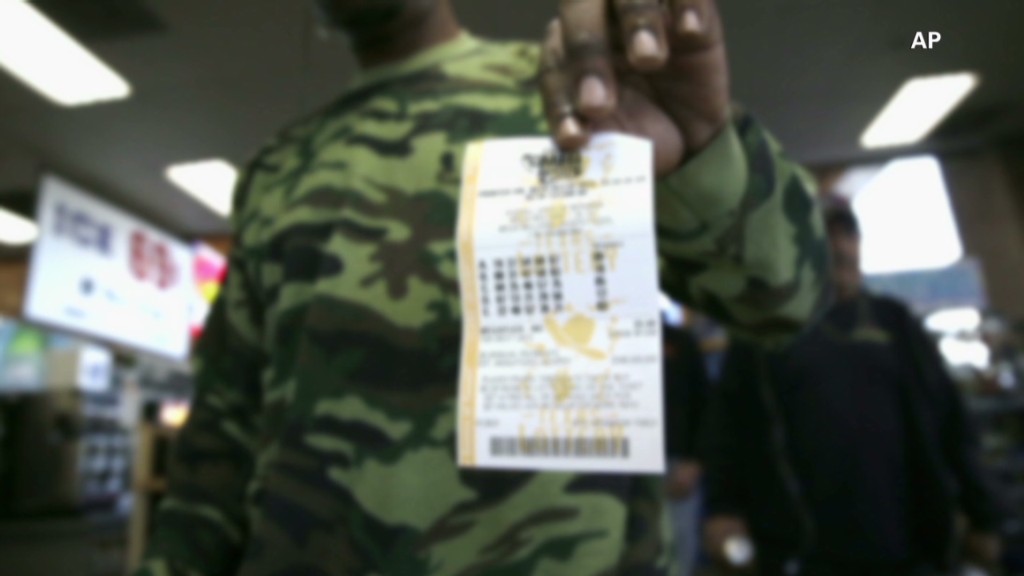
The likelihood of someone winning $500 million in Powerball lottery tonight is very slim.
And that's not just because of the odds of winning are 175 million to one.
It's because the jackpot is actually $338 million for any winner who decides to take a lump sum payment. That's the amount before taxes. And almost all winners opt for the lump sum.
The jackpot would be $500 million only if the winner opts for a 29-year payout.
(The winnings numbers were 11-13-25-39-54. The Powerball was 19 and the Power Play was 3. A lottery official said three winning tickets were sold in Texas, North Carolina and Puerto Rico.)
Related: Shark attacks and asteroid strikes - better odds than winning the lottery
The larger price amount includes the interest that accumulates from the prize money that is invested over the payout period of 29 years.
However, the lotteries always advertise the larger amount.
Terry Rich, president of the North American Association of State and Provincial Lotteries, says it would confuse people if they were to advertise both the amounts.
He also disputes that sales would be hurt if the smaller cash prize were advertised.
Related: The lottery game that's bigger than Powerball
Rich himself admits he wouldn't take the annuity payment, given today's low interest rates.
When interest rates are higher payouts are larger. In 2006, when rates were a lot higher, Wednesday's $500 million Powerball jackpot would have been worth $765 million, a record.
Vinh Nguyen, who bought a winning Powerball ticket in September in San Mateo, Calif., did take the $228 million annuity prize. But he was one of the rare ones to choose that option.
Out of the hundreds of winners, there have been only five Powerball or MegaMillions winners in the last seven years to chose the larger, but deferred, jackpot.

There is one argument for choosing annuity payments -- you can't blow all the winnings as fast.
There have been numerous stories of lottery winners who blew through their winnings only to end up paupers just a few years later.
There was one widely reported story of Andrew "Jack" Whittaker of West Virginia, who took a $170 million lump sum in 2002. But he was robbed often, including one time when he had a brief case full of cash stolen from him at a strip club. Today he is 68 years old and still having to work, and says he wishes he had taken the annuity payments.

